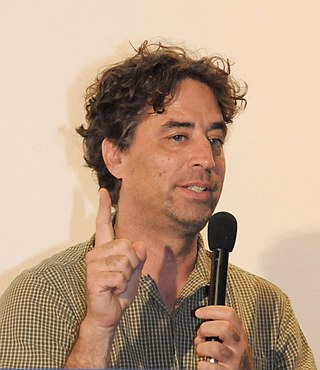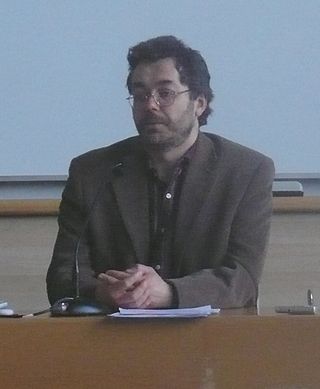An information society is a society where the usage, creation, distribution, manipulation and integration of information is a significant activity. Its main drivers are information and communication technologies, which have resulted in rapid growth of a variety of forms of information. Proponents of this theory posit that these technologies are impacting most important forms of social organization, including education, economy, health, government, warfare, and levels of democracy. The people who are able to partake in this form of society are sometimes called either computer users or even digital citizens, defined by K. Mossberger as “Those who use the Internet regularly and effectively”. This is one of many dozen internet terms that have been identified to suggest that humans are entering a new and different phase of society.
Postmodernity is the economic or cultural state or condition of society which is said to exist after modernity. Some schools of thought hold that modernity ended in the late 20th century – in the 1980s or early 1990s – and that it was replaced by postmodernity, and still others would extend modernity to cover the developments denoted by postmodernity. The idea of the postmodern condition is sometimes characterized as a culture stripped of its capacity to function in any linear or autonomous state like regressive isolationism, as opposed to the progressive mind state of modernism.

Antonio Negri was an Italian political philosopher known as one of the most prominent theorists of autonomism, as well as for his co-authorship of Empire with Michael Hardt and his work on the philosopher Baruch Spinoza. Born in Padua, Italy, Negri became a professor of political philosophy at the University of Padua, where he taught state and constitutional theory. Negri founded the Potere Operaio group in 1969 and was a leading member of Autonomia Operaia, and published hugely influential books urging "revolutionary consciousness".

Michael Hardt is an American political philosopher and literary theorist. Hardt is best known for his book Empire, which was co-written with Antonio Negri.

Empire is a book by post-Marxist philosophers Michael Hardt and Antonio Negri. Written in the mid-1990s, it was published in 2000 and quickly sold beyond its expectations as an academic work.
Multitude is a term for a group of people who cannot be classed under any other distinct category, except for their shared fact of existence. Though its use dates back to antiquity, the term first entered into the lexicon of political philosophy when it was used by figures like Machiavelli, Hobbes, and most notably, Spinoza. The multitude is a concept of a population that has not entered into a social contract with a sovereign political body, such that individuals retain the capacity for political self-determination. A multitude typically is classified as a quantity exceeding 100. For Hobbes the multitude was a rabble that needed to enact a social contract with a monarch, thus turning them from a multitude into a people. For Machiavelli and Spinoza both, the role of the multitude vacillates between admiration and contempt. Recently the term has returned to prominence as a new model of resistance against global systems of power as described by political theorists Michael Hardt and Antonio Negri in their international best-seller Empire (2000) and expanded upon in their Multitude: War and Democracy in the Age of Empire (2004). Other theorists recently began to use the term include political thinkers associated with autonomist Marxism and its sequelae, including Sylvère Lotringer, Paolo Virno, and thinkers connected with the eponymous review Multitudes.
In critical theory, deterritorialization is the process by which a social relation, called a territory, has its current organization and context altered, mutated or destroyed. The components then constitute a new territory, which is the process of reterritorialization.
Autonomism, also known as Autonomist Marxism, is an anti-capitalist social movement and Marxist-based theoretical current that first emerged in Italy in the 1960s from workerism. Later, post-Marxist and anarchist tendencies became significant after influence from the Situationists, the failure of Italian far-left movements in the 1970s, and the emergence of a number of important theorists including Antonio Negri, who had contributed to the 1969 founding of Potere Operaio as well as Mario Tronti, Paolo Virno and Franco "Bifo" Berardi.

Multitude: War and Democracy in the Age of Empire is a book by autonomous Marxist philosophers Antonio Negri and Michael Hardt that was published in 2004. It is the second installment of a "trilogy", also comprising Empire (2000) and Commonwealth (2009).
Affective labor is work carried out that is intended to produce or modify emotional experiences in people. This is in contrast to emotional labor, which is intended to produce or modify one's own emotional experiences. Coming out of Autonomist feminist critiques of marginalized and so-called "invisible" labor, it has been the focus of critical discussions by, e.g., Antonio Negri, Michael Hardt, Juan Martin Prada, and Michael Betancourt.
Posthegemony or post-hegemony is a period or a situation in which hegemony is no longer said to function as the organizing principle of a national or post-national social order, or of the relationships between and amongst nation states within the global order. The concept has different meanings within the fields of political theory, cultural studies, and international relations.

Anselm Jappe is a German professor of philosophy. Jappe currently resides in Italy. Jappe has authored several works in German, French, and Italian. Jappe has lectured at several institutions in within higher education.
Open Marxism is a critical Marxist school of thought which critiques state socialism and party politics, stressing the need for openness to praxis and history through an anti-positivist method grounded in the "practical reflexivity" of Karl Marx's own concepts. The "openness" in open Marxism also refers to a non-deterministic view of history in which the unpredictability of class struggle is foregrounded. Derrida describes an 'open' Marxist tradition in an interview from 1980.

Domenico Losurdo was an Italian historian, essayist, Marxist philosopher, and communist politician.
Non-simultaneity or nonsynchronism is a concept in the writings of Ernst Bloch which denotes the time lag, or uneven temporal development, produced in the social sphere by the processes of capitalist modernization and/or the incomplete nature of those processes. The term, especially in the phrase "the simultaneity of the non-simultaneous", has been used subsequently in predominantly Marxist theories of modernity, world-systems, postmodernity and globalization.
The global citizens movement is a constellation of organized and overlapping citizens' groups seeking to foster global solidarity in policy and consciousness. The term is often used synonymously with the anti-globalization movement or the global justice movement.
A. Kiarina Kordela (; is a Greek-American philosopher and critical theorist. She is a professor of German Studies and founding director of the Critical Theory Program at Macalester College in Saint Paul, MN.
Post-Marxism is a perspective in critical social theory which radically reinterprets Marxism, countering its association with economism, historical determinism, anti-humanism, and class reductionism, whilst remaining committed to the construction of socialism. Most notably, post-Marxists are anti-essentialist, rejecting the primacy of class struggle, and instead focus on building radical democracy. Post-Marxism can be considered a synthesis of post-structuralist frameworks and neo-Marxist analysis, in response to the decline of the New Left after the protests of 1968.
Immaterial labor is a Marxist framework to describe how value is produced from affective and cognitive activities, which, in various ways, are commodified in capitalist economies. The concept of immaterial labor was coined by Italian sociologist and philosopher Maurizio Lazzarato in his 1996 essay "Immaterial Labor", published as a contribution to Radical Thought in Italy and edited by Virno and Hardt. It was re-published in 1997 as: Lavoro immateriale. Forme di vita e produzione di soggettività.. Lazzarato was a participant in the Years of Lead (Italy) group as a student in Padua in the 1970s, and is a member of the editorial group of the journal Multitudes. Post-Marxist scholars including Franco Berardi, Antonio Negri, Michael Hardt, Judith Revel, and Paolo Virno, among others have also employed the concept.

The following outline is provided as an overview of and topical guide to Marxism:







